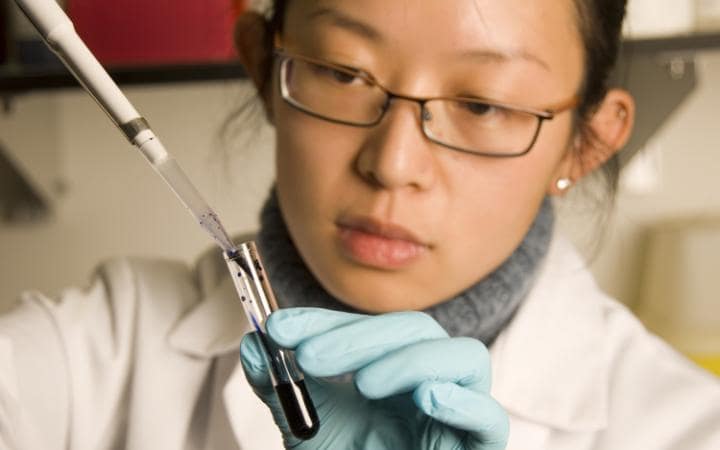Cancer Research UK is continuously looking at ways to improve the way in which patients are diagnosed and treated in regards to more than 200 different types of the disease. There may not be any cure as of yet, but we are certainly getting much closer, and much of that is down to the extensive work carried out by Cancer Research UK.
Over the past few decades, and even more so recently, many of cancer’s secrets have been uncovered, and we know far more about the disease now than we ever have. This gives experts a much better chance of one day finding a cure. New technologies have given us better screening tests and targeted treatments and may just save some patients from undergoing invasive surgery. With new methods, patients can receive the right treatment every time.
Dr. Allan Jordan, head of chemistry in the Drug Discovery Unit at the Cancer Research UK Manchester Institute, has seen cancer survival rates double during his lifetime, but he wants to improve on this even further. Jordon hopes that by continuing to carry out extensive research will get that figure to three in four people having a ten years cancer survival rate and says, “The only way we will do that is through research. We will win this fight because knowledge is power.”
The following are a few of the current projects being supported by Cancer Research UK:
- Liquid Biopsies: By investigating clues in the patient’s DNA, researchers gain a much deeper understanding of cancer. It’s a much less invasive way to track cancer and is more accurate than most other methods too. Current research in this area focuses on how tracking tumors via the blood may offer a better option for monitoring patients and subsequently learn how some become resistant to drugs.
- Genetic Editing: This is a big topic at the moment and projects are underway at University College London’s (UCL) laboratories that involve attempting to use gene editing to target cells that are trained to spot cancer and remove their sleep switch, hopefully boosting their ability to destroy the cancerous cells. Currently, there are some immunotherapy drugs that work by turning off the sleep switch, but they can cause horrible side effects, hence why more research needs to be done. But, the method has proved successful in mice, so researchers are keen to get this perfected and approved for human use.
- The iKnife: This knife is so intelligent that it can differentiate between that of a healthy cell and that if a cancerous one. Scientists over at Imperial College London are testing the electronic iKnife as we write. This innovative product will allow doctors to analyze tissue on the spot during surgery and remove cancer more effectively.
- Gold nanoparticles: It’s all about targeted treatment these days, and that suits nanoparticles perfectly. These minuscule particles are loaded with drugs and directed straight to the cancer cells where they can set to work immediately in the right place. The same technique could also be used to deliver radioactivity to the cancerous cells to destroy them.
- Nanobubbles: A project underway at the University of Oxford involves exploring different ways of targeting pancreatic cancer. This form of cancer is known for being more resistant to treatment than many other forms. Researchers are currently looking at raising oxygen levels in tumors to make cancer more susceptible to treatment. Promising results have already been seen in mice that have been injected with nanobubbles, and researchers are now working on making a drink that will have the same effect.
More News To Read
- Wearables Taken to a New Level as MIT Researchers Create Ingestible Battery
- Peter Lewis’ World of Quantum Mechanics
- Would a Black Hole Annihilate Us If It Suddenly Appeared in Our Solar System?
- Will the Discovery of Time Crystals Change Our Perception of the Space-Time Continuum?
- Will China be the First to Have a Workforce Dominated by Robots?











